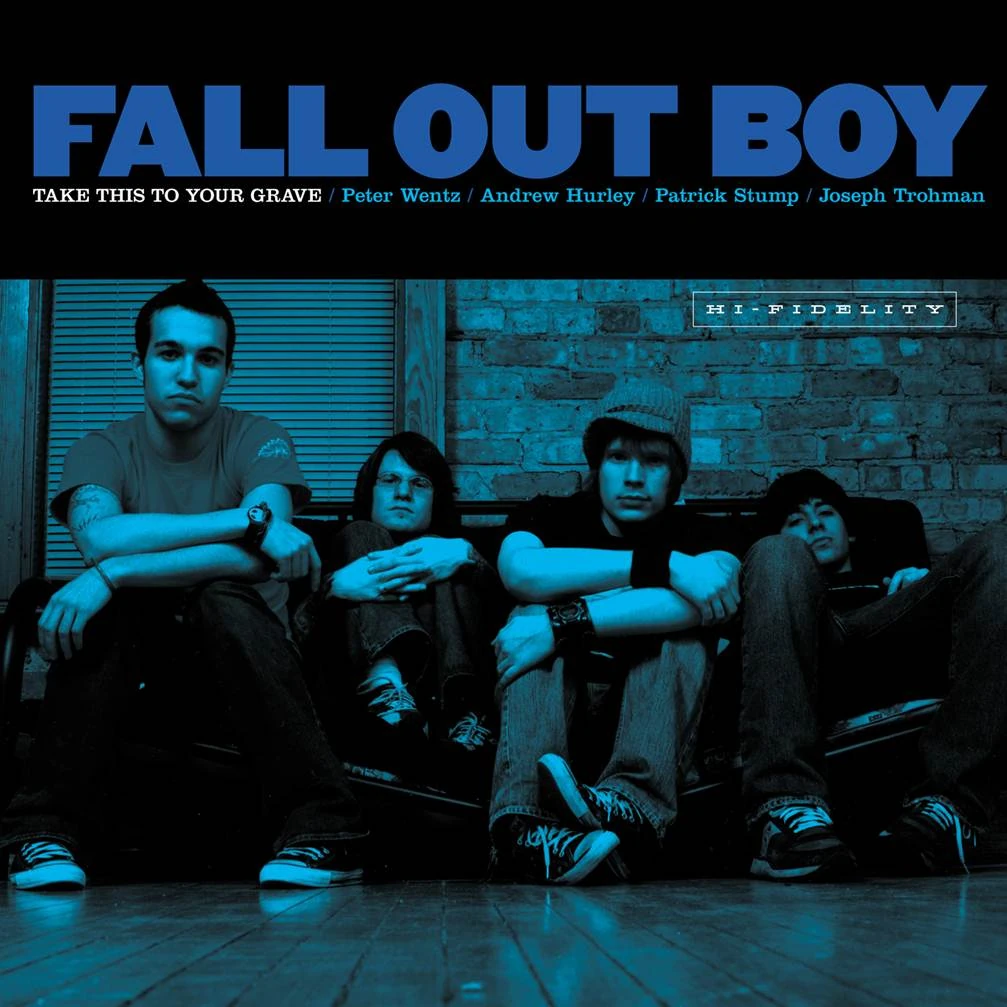 Gwen Stefani has long been celebrated for her bold persona, vibrant fashion sense, and genre-blending approach to music, but “4 In The Morning,” a standout track from her 2006 solo debut album The Sweet Escape, reveals a more vulnerable and intimate side of the artist. Unlike the brash and playful energy of hits like “Hollaback Girl” or the buoyant pop-funk of Love. Angel. Music. Baby., “4 In The Morning” offers listeners a glimpse into the quiet, introspective world of a woman grappling with emotional uncertainty and the fragility of love. The song demonstrates Stefani’s versatility as a performer, balancing polished pop production with raw emotional resonance, and it continues to be celebrated as one of her most sincere and affecting ballads.
Gwen Stefani has long been celebrated for her bold persona, vibrant fashion sense, and genre-blending approach to music, but “4 In The Morning,” a standout track from her 2006 solo debut album The Sweet Escape, reveals a more vulnerable and intimate side of the artist. Unlike the brash and playful energy of hits like “Hollaback Girl” or the buoyant pop-funk of Love. Angel. Music. Baby., “4 In The Morning” offers listeners a glimpse into the quiet, introspective world of a woman grappling with emotional uncertainty and the fragility of love. The song demonstrates Stefani’s versatility as a performer, balancing polished pop production with raw emotional resonance, and it continues to be celebrated as one of her most sincere and affecting ballads.
The song opens with a gentle, synthesized piano motif that sets a contemplative and melancholy tone. The minimalistic instrumentation immediately signals a departure from the bombastic hooks that characterized much of Stefani’s early solo work, offering a more restrained and intimate canvas for her vocals. As the verses unfold, subtle layers of strings and electronic textures are introduced, creating a delicate backdrop that mirrors the emotional complexity of the song’s narrative. The production, handled by the seasoned team of Nellee Hooper and Gwen Stefani herself, showcases a sophisticated pop sensibility, balancing accessibility with depth and ensuring that Stefani’s voice remains at the forefront.
Vocally, Gwen Stefani delivers “4 In The Morning” with remarkable emotional authenticity. Her voice is soft and contemplative in the verses, conveying vulnerability, while the chorus swells with a sense of urgent yearning. This dynamic performance allows listeners to feel the push and pull of intimacy, desire, and insecurity that the lyrics explore. Stefani’s phrasing is natural and conversational, making the narrative feel personal and immediate, as if she is speaking directly to the listener—or perhaps to the subject of her affections—late in the night when doubts and emotions run high. The balance of delicacy and intensity in her delivery ensures that the song resonates on both a musical and emotional level.
Lyrically, “4 In The Morning” is a candid exploration of relational tension and the uncertainty that often accompanies love. The narrative revolves around a late-night conversation or confrontation between lovers, with the titular time emphasizing the heightened emotional sensitivity that the early morning hours can bring. Lines such as “I know it’s late / I don’t want to wait / But I can’t let it go” illustrate the internal conflict between desire and hesitation, reflecting the universal tension between vulnerability and self-preservation in romantic relationships. The lyrics avoid melodrama, instead favoring nuanced observations that lend the song authenticity and emotional weight.
Thematically, the song fits into a larger tradition of pop ballads that explore late-night introspection and emotional honesty. Stefani’s approach, however, is distinct for its combination of candid lyricism with contemporary pop production. While many pop ballads of the mid-2000s relied on either dramatic orchestration or straightforward acoustic accompaniment, “4 In The Morning” blends subtle electronic textures, understated percussion, and string arrangements to create a soundscape that is both modern and timeless. This fusion allows the song to feel immediate and relatable, while also demonstrating Stefani’s willingness to push the boundaries of conventional pop balladry.
Musically, “4 In The Morning” exhibits a careful attention to dynamics and pacing. The verses are restrained, almost confessional, allowing Stefani’s voice and the lyrical content to take center stage. As the chorus arrives, the instrumentation swells subtly, adding emotional weight without overwhelming the listener. The song’s bridge introduces harmonic tension, echoing the unresolved feelings and relational complexity that the lyrics explore. This careful structuring ensures that the song maintains listener engagement throughout its runtime, balancing introspection with moments of heightened emotional intensity.
The production choices in “4 In The Morning” also highlight Stefani’s evolution as a solo artist. Having emerged from the ska-punk-infused pop-rock of No Doubt, she demonstrates here an ability to inhabit a softer, more mature sonic space without losing her distinctive vocal and lyrical identity. The song’s layered textures, precise mixing, and understated yet effective use of electronic elements underscore Stefani’s willingness to experiment within pop frameworks, creating a track that is as sonically sophisticated as it is emotionally resonant.
Upon its release, “4 In The Morning” was met with critical praise for its sincerity and emotional depth. Critics highlighted the contrast between Stefani’s playful, persona-driven hits and this more introspective work, noting that the song revealed her versatility and maturity as an artist. Commercially, the track performed well internationally, particularly in markets such as the United Kingdom, where it became a top-ten hit, solidifying Stefani’s global appeal and reinforcing her status as a multifaceted pop star. The reception demonstrated that audiences were not only receptive to her bold, extroverted hits but also deeply appreciative of her more vulnerable, intimate offerings.
The song’s enduring appeal lies in its relatability and emotional honesty. Late-night introspection, self-doubt, and the complexities of intimate relationships are universal experiences, and Stefani captures these moments with nuance and subtlety. The repeated motif of “four in the morning” serves as both a literal and symbolic anchor, evoking the quiet vulnerability and heightened emotional awareness that often characterize the early morning hours. By grounding the song in a specific time, she creates a vivid, relatable setting that amplifies the song’s emotional impact and allows listeners to place themselves within the narrative.
Live performances of “4 In The Morning” further underscore its emotional potency. Stefani’s ability to convey vulnerability and intimacy on stage allows audiences to connect with the song in a deeply personal way, transforming it from a recorded ballad into a shared emotional experience. The stripped-down arrangements often employed during live renditions highlight her vocal strength and interpretive skill, emphasizing the song’s lyrical content and allowing the emotional subtleties to shine. These performances reaffirm the song’s place as a highlight of her solo repertoire and a defining example of her range as a performer.
“4 In The Morning” also illustrates Stefani’s lyrical craftsmanship. While pop music often relies on clichés or generic expressions of emotion, Stefani’s writing is marked by specificity, honesty, and a keen observational sense. Her portrayal of relational tension—capturing both vulnerability and assertiveness—is both realistic and compelling, giving the song emotional credibility. The balance between directness and subtlety allows the listener to inhabit the narrative fully, empathizing with the complexities of late-night conversations, unresolved feelings, and the push-and-pull dynamics of love.
From a cultural perspective, the song resonates because it represents a shift in how female artists in pop were able to explore emotional depth in mainstream music. While the mid-2000s pop landscape included many upbeat, heavily produced hits, there was a growing appetite for more introspective, sincere work that spoke to personal experience. “4 In The Morning” occupies that space perfectly, combining Stefani’s star power with emotional authenticity, and paving the way for audiences to embrace vulnerability in pop music.
The production’s subtle layering of instruments also enhances the song’s thematic resonance. Synthesizers provide a shimmering, reflective quality, while strings add emotional weight without overwhelming the arrangement. Percussion is used sparingly, emphasizing the track’s contemplative tone and allowing the vocals to remain central. This careful orchestration creates a sonic environment that mirrors the song’s emotional content: quiet moments of introspection punctuated by emotional crescendos that convey the intensity of intimate relationships.
In addition, “4 In The Morning” benefits from Gwen Stefani’s ability to balance personal expression with mainstream appeal. The song is both artistically sophisticated and immediately accessible, allowing a wide audience to connect with its themes without sacrificing depth. Its universal exploration of love, doubt, and emotional honesty resonates across demographics, making it a timeless addition to Stefani’s catalog. The track demonstrates her skill in crafting music that is emotionally nuanced yet commercially viable, a balance that few pop artists achieve with such consistency.
The emotional arc of the song is carefully constructed. The verses provide space for reflection, capturing moments of quiet vulnerability and uncertainty. The chorus serves as both a release and an affirmation, conveying emotional urgency and desire for resolution. The bridge introduces tension, reflecting the relational complexities at the heart of the narrative. This careful structuring ensures that listeners remain engaged, while also reinforcing the song’s thematic depth and emotional realism.
Lyrically, the song also explores themes of communication, trust, and relational introspection. By focusing on the specific context of late-night emotional vulnerability, Stefani highlights the importance of dialogue, understanding, and emotional presence in intimate relationships. The song does not rely on grandiose declarations or sweeping romantic gestures; instead, it finds power in quiet moments, subtle admissions, and the courage to confront uncertainty with honesty. This approach gives the song a grounded, relatable quality that has contributed to its enduring relevance.
In the context of Gwen Stefani’s broader career, “4 In The Morning” represents a crucial moment of artistic maturity. Having transitioned from her role as the frontwoman of No Doubt, where she navigated ska, punk, and pop influences, to a solo artist with a diverse pop palette, Stefani demonstrates her ability to inhabit multiple emotional and musical spaces. The track showcases her versatility, allowing her to explore vulnerability, introspection, and emotional nuance while maintaining the distinctive vocal and lyrical identity that defines her work.
Ultimately, 4 In The Morning by Gwen Stefani is more than just a pop ballad—it is a masterful exploration of emotional vulnerability, relational complexity, and the quiet intensity of love and doubt. Its nuanced production, sophisticated vocal performance, and emotionally resonant lyrics have ensured its place as one of Stefani’s most memorable solo works. The song’s ability to combine accessibility with depth, intimacy with polished pop sensibility, and personal expression with universal relatability ensures that it continues to resonate with listeners, decades after its initial release.
“4 In The Morning” remains a testament to Gwen Stefani’s artistic range, emotional intelligence, and skill as a songwriter and performer. Its enduring appeal lies in its honesty, its melodic beauty, and its ability to capture the nuanced emotions of late-night reflection, relational uncertainty, and intimate confession. As a piece of 2000s pop music, it stands out not only for its musical sophistication but for its ability to touch listeners on a deeply personal level, creating a lasting connection that transcends time, genre, and generational boundaries.


